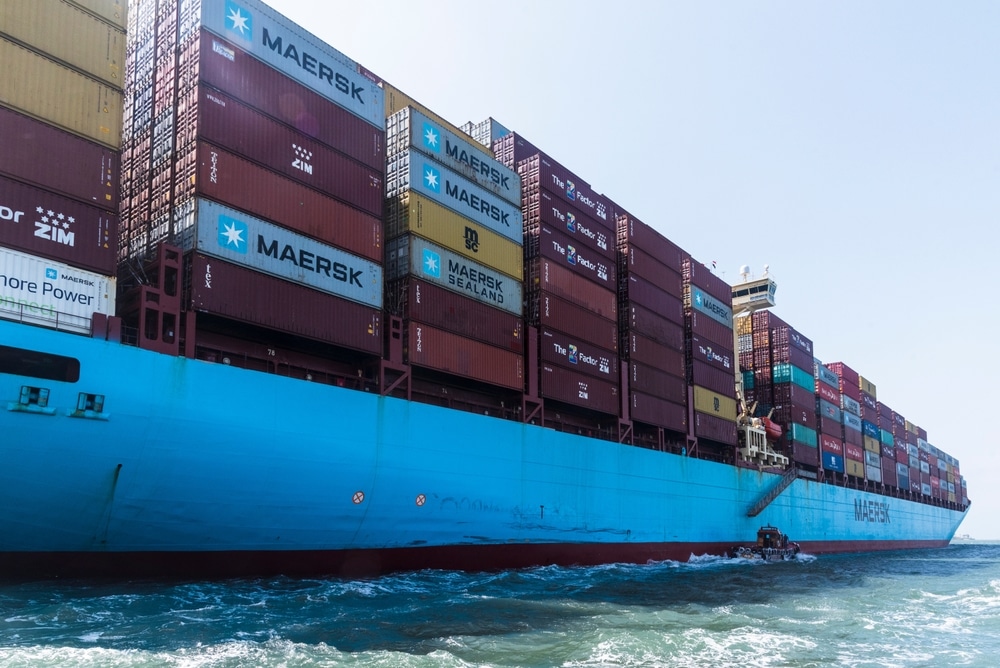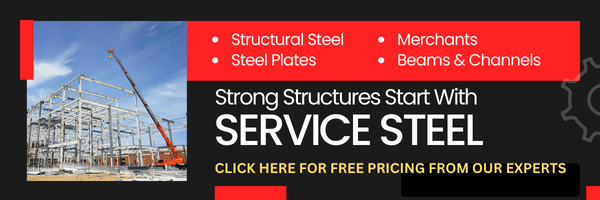Steel Tariffs on Chinese Imports & How it Affects the US Industry
August 7, 2024 | Categorized in: News

Steel is the backbone of countless industries, from construction to infrastructure. So, when steel tariffs change, it can impact your bottom line. This article is here to cut through the confusion. We’ll explain what these tariffs mean, how they might affect your business, and what to watch for in the future.
What are tariffs?
Tariffs, most simply put, are taxes placed on imported goods, such as steel. They act as a price control mechanism, driving up the cost of foreign products and making domestically produced alternatives more attractive. This can be a double-edged sword, offering potential benefits to the American economy but also introducing complications for businesses that rely on steel imports.
US steel tariffs: a brief history of Section 232
When it comes to the issue of steel tariffs, it has a long and complex history, with recent actions that brought it back into the headlines. In the past, the US steel industry has faced significant competition from foreign producers, particularly China, who have been accused of unfair trade practices like government subsidies and currency manipulation. These practices lead to artificially low steel prices, placing a strain on the US industry’s competitiveness.
In 2018 the Trump administration invoked Section 232 steel tariffs of the Trade Expansion Act of 1962, citing national security vulnerabilities. This article empowers the President of the United States to adjust imports in a way that safeguards national security. This can involve imposing quotas or tariffs on specific goods coming from specific countries.
This was all prompted by USTR’s Section 301 investigation into China’s alleged theft of intellectual property and forced technology transfer. The investigation’s findings resulted in the imposition of tariffs on billions of dollars worth of Chinese goods, including steel imports.
Section 301 & Biden’s 2024 US steel tariffs
In May 2024 there was another change to steel tariffs as the US tripled the Section 301 tariffs on Chinese steel. As a part of the Trade Act of 1974, Section 301 addresses unfair trade practices and allows the President to retaliate against countries engaging in these practices like intellectual property theft, currency manipulation, or export subsidies that disadvantage American businesses.
With this, the Biden Administration announced the tariff rate on certain steel and aluminum products under Section 301 will increase from 0–7.5% to 25% this year.
The goal is to boost domestic steel production, level the playing field for US businesses, and encourage China to adopt fairer trade practices. However, critics say it also raises concerns about potential disruptions to global supply chains and price increases for steel consumers across various industries such as powerlines and high-rise construction.
Advantages of tariffs on structural steel markets
The recent implementation of steel tariffs presents a complex scenario for American businesses. While the initial reaction might be concern over rising steel prices, a closer look shows the opportunity for strategic sourcing and long-term benefits.
Steel tariffs can have many positive effects on the domestic structural steel industry. For example:
- By making Chinese steel less affordable, the tariff incentivizes businesses to source their steel domestically.
- A stronger domestic steel industry could reduce reliance on foreign suppliers.
- Additionally, reduced competition from Chinese imports can incentivize American steel producers to invest in research and development.
- Improved quality control of American steel producers can lead to fewer delays and higher quality goods.
- An increase in American steel production could create more jobs and boost the local economy in steel-producing regions.
As you can begin to see, the steel tariffs, rather than being viewed solely as a cost obstacle, can be a catalyst for a strategic reassessment of your steel sourcing practices. By prioritizing quality and innovation, while creating strong local partnerships, your business can not only adapt to the new landscape but potentially emerge as a leader in promoting superior American-made steel products. This forward-thinking approach will help to position your company for long-term success within the evolving steel market.
Here to supply American-made steel for your next project
Understanding the ongoing debate surrounding steel tariffs is crucial for businesses that purchase and produce steel. The cost of steel can significantly impact production costs, project budgets, and ultimately, consumer prices. By looking deeper into the historical context, economic effects, and potential future developments, businesses can make informed decisions and navigate the evolving landscape of US steel tariffs.
As a US steel supplier, we are committed to providing our customers with high-quality American steel. The steel industry continues to evolve, which is why we are here to guide you through the ups and downs of the market with our tailored solutions and localized support. We will always ensure you get steel that you can trust and that meets ASTM steel standards. Our ready-to-ship inventory of high-quality structural steel is ready for your order, so request a free quote or give us a call today!

